Agriculture significantly bolsters tourism by providing unique experiences, local cuisine, and scenic landscapes. Discover how this vital connection enhances travel with SIXT.VN!
Are you dreaming of exploring the rich landscapes and vibrant culture of Vietnam? The link between agriculture and tourism is more profound than you might think. SIXT.VN is here to guide you through how these two sectors intertwine, creating unforgettable travel experiences. By understanding the importance of local farming, you can experience the best of Vietnam while supporting local communities. Let’s explore the vital role agriculture plays in the tourism industry, enhancing your vacation and offering authentic Vietnamese adventures.
1. What is the Connection Between Agriculture and Tourism?
Agriculture supports tourism by providing local food, creating agritourism experiences, and shaping landscapes that attract visitors. This connection enhances tourist experiences and contributes to local economies.
The relationship between agriculture and tourism is deeply intertwined, contributing significantly to the economy and cultural landscape of many regions. When these two sectors work together, the result is a tourism experience that is both authentic and sustainable. According to a study by the UN World Tourism Organization, destinations that integrate agriculture into their tourism offerings often see higher visitor satisfaction and increased revenue for local communities.
1.1. How Does Agriculture Enhance Tourism Experiences?
Agriculture enhances tourism experiences by providing fresh, local cuisine. It allows tourists to engage in hands-on activities like farming, and preserving cultural landscapes that are naturally appealing.
-
Culinary Tourism: Food is a central part of travel, and agriculture provides the raw ingredients for delicious, local cuisine. Tourists increasingly seek authentic culinary experiences, and fresh, locally sourced ingredients make meals more memorable.
-
Agritourism Activities: Farms can offer activities like fruit picking, farm stays, and cooking classes, providing tourists with hands-on experiences and a deeper connection to the land.
-
Scenic Landscapes: Well-maintained agricultural landscapes, such as vineyards, rice paddies, and orchards, add to the visual appeal of a destination, drawing tourists in with their beauty.
1.2. What Role Does Agriculture Play in Sustainable Tourism?
Agriculture promotes sustainable tourism by supporting local economies, preserving cultural heritage, and promoting responsible land use. It also reduces the carbon footprint of food production.
-
Supporting Local Economies: When tourists buy locally grown food and participate in agritourism activities, they support local farmers and businesses. This helps to diversify income sources and strengthen rural communities.
-
Preserving Cultural Heritage: Traditional farming practices often reflect a region’s cultural heritage. By supporting these practices, tourism helps to preserve traditions and cultural identity.
-
Responsible Land Use: Sustainable agriculture practices, such as crop rotation and organic farming, help to protect the environment and maintain the beauty of agricultural landscapes.
1.3. What are the Benefits of Agritourism for Farmers and Tourists?
Agritourism benefits farmers by providing additional income streams, while tourists enjoy unique, educational experiences. It fosters a deeper appreciation for food production and rural life.
-
Additional Income for Farmers: Agritourism provides farmers with a new revenue stream, helping them to diversify their income and become more resilient to market fluctuations.
-
Educational Opportunities for Tourists: Agritourism offers tourists the chance to learn about farming practices, food production, and the importance of sustainable agriculture.
-
Unique Experiences: Agritourism provides tourists with hands-on, authentic experiences that are different from traditional tourism activities. This can include everything from harvesting crops to learning about animal care.
-
Support for Rural Communities: Agritourism helps to support rural communities by creating jobs, promoting local businesses, and preserving cultural heritage.
1.4. What are Some Examples of Successful Agritourism Initiatives Around the World?
Successful agritourism initiatives include vineyard tours in Tuscany, Italy, farm stays in New Zealand, and rice paddy tours in Bali, Indonesia. These initiatives showcase the diverse ways agriculture and tourism can intertwine.
-
Tuscany, Italy: Vineyard tours and wine tastings in Tuscany are a prime example of agritourism. Visitors can explore vineyards, learn about winemaking, and sample local wines while enjoying the beautiful landscapes.
-
New Zealand: Farm stays in New Zealand offer tourists the chance to experience rural life firsthand. They can participate in farming activities, learn about animal care, and enjoy the peace and quiet of the countryside.
-
Bali, Indonesia: Rice paddy tours in Bali showcase the beauty and cultural significance of rice farming. Tourists can walk through the paddies, learn about traditional farming techniques, and enjoy the stunning views.
1.5. How Can SIXT.VN Enhance Your Agritourism Experience in Vietnam?
SIXT.VN enhances your agritourism experience in Vietnam by providing convenient transportation, comfortable accommodations, and curated tours that highlight the best of local agriculture.
-
Convenient Transportation: SIXT.VN offers reliable airport transfer services, making it easy to reach your agritourism destination from the moment you arrive in Vietnam.
-
Comfortable Accommodations: SIXT.VN provides a range of accommodation options, from hotels in vibrant cities to cozy farm stays in rural areas, ensuring a comfortable and authentic experience.
-
Curated Tours: SIXT.VN offers expertly guided tours that highlight Vietnam’s agricultural heritage, taking you to picturesque rice terraces, verdant tea plantations, and bustling local markets.
-
Personalized Itineraries: SIXT.VN can help you create a personalized itinerary that includes visits to local farms, cooking classes featuring fresh ingredients, and cultural experiences that celebrate Vietnam’s agricultural traditions.
-
Local Expertise: SIXT.VN’s local experts can provide insights into the best times to visit specific agricultural sites, recommend authentic dining experiences, and offer tips for responsible and sustainable travel.
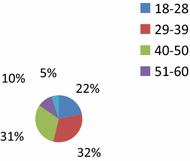 Rice fields in Vietnam, showcasing the beauty of agricultural landscapes
Rice fields in Vietnam, showcasing the beauty of agricultural landscapes
2. What are the Benefits of Linking Agriculture and Tourism for Local Communities?
Linking agriculture and tourism boosts local economies, preserves cultural heritage, creates jobs, and promotes sustainable development. These benefits improve the quality of life for residents.
When agriculture and tourism are strategically linked, the positive impacts on local communities are significant and far-reaching. According to a report by the Food and Agriculture Organization (FAO), integrating these sectors can lead to increased income, improved infrastructure, and enhanced community resilience.
2.1. How Does Tourism Boost Agricultural Economies?
Tourism boosts agricultural economies by creating a demand for local products, increasing revenue for farmers, and stimulating investment in agricultural infrastructure.
-
Increased Demand for Local Products: Tourists seek authentic experiences, including locally sourced food and products. This demand increases revenue for farmers and local businesses.
-
Higher Prices for Agricultural Goods: Tourists are often willing to pay more for high-quality, locally produced goods, which can increase farmers’ profits.
-
Investment in Agricultural Infrastructure: The tourism industry can stimulate investment in agricultural infrastructure, such as processing facilities, storage facilities, and transportation networks.
2.2. How Does Agritourism Help Preserve Cultural Heritage?
Agritourism helps preserve cultural heritage by showcasing traditional farming practices, promoting local cuisine, and supporting cultural events.
-
Showcasing Traditional Farming Practices: Agritourism provides a platform for farmers to showcase traditional farming techniques and practices, preserving cultural heritage and knowledge.
-
Promoting Local Cuisine: Agritourism helps to promote local cuisine by providing tourists with opportunities to taste and learn about traditional dishes made with locally sourced ingredients.
-
Supporting Cultural Events: Agritourism can support cultural events, such as harvest festivals and agricultural fairs, which celebrate local traditions and cultural identity.
2.3. How Does the Agriculture-Tourism Link Create Employment Opportunities?
The agriculture-tourism link creates employment opportunities in farming, hospitality, transportation, and related services, providing diverse income sources for local residents.
-
Farming: Agritourism creates jobs in farming, including crop production, animal care, and farm maintenance.
-
Hospitality: Agritourism creates jobs in hospitality, including lodging, food service, and tour guiding.
-
Transportation: Agritourism creates jobs in transportation, including driving tourists to and from farms and providing transportation for farm products.
2.4. How Can Sustainable Agricultural Practices Benefit Tourism?
Sustainable agricultural practices benefit tourism by preserving natural resources, protecting biodiversity, and enhancing the scenic beauty of tourist destinations.
-
Preserving Natural Resources: Sustainable agriculture practices, such as water conservation and soil management, help to preserve natural resources and protect the environment.
-
Protecting Biodiversity: Sustainable agriculture practices, such as crop diversification and organic farming, help to protect biodiversity and maintain healthy ecosystems.
-
Enhancing Scenic Beauty: Sustainable agriculture practices, such as maintaining hedgerows and preserving traditional landscapes, help to enhance the scenic beauty of tourist destinations.
2.5. How Does SIXT.VN Support Local Communities Through Tourism in Vietnam?
SIXT.VN supports local communities through tourism in Vietnam by promoting local businesses, offering sustainable travel options, and providing fair employment opportunities.
-
Promoting Local Businesses: SIXT.VN partners with local businesses, such as family-run hotels, restaurants, and tour operators, to promote their services and products to tourists.
-
Offering Sustainable Travel Options: SIXT.VN offers sustainable travel options, such as eco-friendly accommodations, responsible tour operators, and transportation services that minimize environmental impact.
-
Providing Fair Employment Opportunities: SIXT.VN provides fair employment opportunities for local residents, ensuring that they receive fair wages and benefits.
-
Supporting Community-Based Tourism: SIXT.VN supports community-based tourism initiatives, which empower local communities to manage and benefit from tourism activities in their area.
-
Educating Tourists: SIXT.VN educates tourists about the importance of supporting local communities and making responsible travel choices.
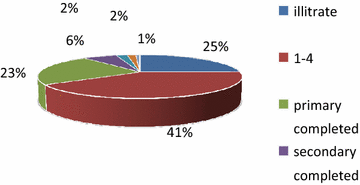 A local Vietnamese farmer tending to a rice paddy with a traditional conical hat
A local Vietnamese farmer tending to a rice paddy with a traditional conical hat
3. What are the Challenges in Integrating Agriculture and Tourism?
Integrating agriculture and tourism faces challenges such as balancing economic gains with environmental protection, maintaining product quality, and addressing infrastructure limitations.
Successfully integrating agriculture and tourism requires careful planning and management to overcome various challenges. According to a study by the World Bank, destinations must address these challenges to ensure that the benefits of integration outweigh the costs.
3.1. How Can Destinations Balance Economic Gains with Environmental Protection?
Destinations can balance economic gains with environmental protection by implementing sustainable tourism practices, promoting responsible land use, and investing in environmental conservation.
-
Sustainable Tourism Practices: Implementing sustainable tourism practices, such as reducing waste, conserving water, and using renewable energy, can minimize the environmental impact of tourism activities.
-
Responsible Land Use: Promoting responsible land use, such as preventing deforestation and protecting wetlands, can preserve natural habitats and biodiversity.
-
Investing in Environmental Conservation: Investing in environmental conservation, such as restoring degraded ecosystems and protecting endangered species, can enhance the natural beauty of tourist destinations.
3.2. How Can Farmers Maintain the Quality and Consistency of Their Products for Tourists?
Farmers can maintain the quality and consistency of their products for tourists by implementing quality control measures, investing in training and technology, and establishing partnerships with local businesses.
-
Quality Control Measures: Implementing quality control measures, such as regular inspections and testing, can ensure that products meet the standards expected by tourists.
-
Investing in Training and Technology: Investing in training and technology can help farmers improve their production methods and produce higher-quality goods.
-
Establishing Partnerships: Establishing partnerships with local businesses, such as hotels and restaurants, can help farmers access new markets and receive feedback on their products.
3.3. What Infrastructure Limitations Hinder the Integration of Agriculture and Tourism?
Infrastructure limitations that hinder the integration of agriculture and tourism include inadequate transportation networks, limited access to electricity and water, and a lack of processing and storage facilities.
-
Inadequate Transportation Networks: Poor road conditions and a lack of reliable transportation can make it difficult to transport agricultural products to tourist destinations.
-
Limited Access to Electricity and Water: A lack of access to electricity and water can limit farmers’ ability to irrigate their crops and process their products.
-
Lack of Processing and Storage Facilities: A lack of processing and storage facilities can lead to spoilage and waste, reducing the value of agricultural products.
3.4. How Can Destinations Ensure that Local Communities Benefit from Tourism Revenue?
Destinations can ensure that local communities benefit from tourism revenue by implementing fair taxation policies, promoting local employment, and supporting community-based tourism initiatives.
-
Fair Taxation Policies: Implementing fair taxation policies can ensure that a portion of tourism revenue is used to fund local services and infrastructure.
-
Promoting Local Employment: Promoting local employment in the tourism industry can provide income opportunities for local residents and reduce poverty.
-
Supporting Community-Based Tourism: Supporting community-based tourism initiatives can empower local communities to manage and benefit from tourism activities in their area.
3.5. How Does SIXT.VN Address These Challenges to Promote Responsible Tourism in Vietnam?
SIXT.VN addresses these challenges to promote responsible tourism in Vietnam by working with sustainable suppliers, supporting local initiatives, and educating travelers about responsible travel practices.
-
Working with Sustainable Suppliers: SIXT.VN partners with suppliers who are committed to sustainable practices, such as reducing waste, conserving water, and supporting local communities.
-
Supporting Local Initiatives: SIXT.VN supports local initiatives that promote sustainable agriculture and community development, such as farmer cooperatives and eco-tourism projects.
-
Educating Travelers: SIXT.VN educates travelers about responsible travel practices, such as respecting local culture, supporting local businesses, and minimizing their environmental impact.
-
Promoting Ethical Tourism: SIXT.VN promotes ethical tourism by ensuring that all of its suppliers adhere to fair labor practices and respect human rights.
-
Monitoring and Evaluation: SIXT.VN regularly monitors and evaluates the sustainability performance of its suppliers to ensure that they are meeting their commitments.
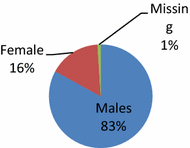 A woman in Vietnam selling fresh produce at a local market
A woman in Vietnam selling fresh produce at a local market
4. What Are Examples of Successful Agriculture-Tourism Partnerships in Vietnam?
Successful agriculture-tourism partnerships in Vietnam include farm-to-table restaurants, tea plantation tours in the highlands, and community-based eco-tourism projects in rural areas.
Vietnam is home to several successful agriculture-tourism partnerships that showcase the benefits of integrating these two sectors. These partnerships not only enhance the tourism experience but also contribute to the sustainable development of local communities.
4.1. How Do Farm-to-Table Restaurants Support Local Agriculture?
Farm-to-table restaurants support local agriculture by sourcing ingredients directly from local farms, promoting seasonal cuisine, and educating diners about the importance of sustainable farming practices.
-
Sourcing Ingredients Directly: Farm-to-table restaurants source ingredients directly from local farms, cutting out intermediaries and ensuring that farmers receive a fair price for their products.
-
Promoting Seasonal Cuisine: Farm-to-table restaurants promote seasonal cuisine, using ingredients that are in season and locally available. This reduces the need for long-distance transportation and supports local farmers.
-
Educating Diners: Farm-to-table restaurants educate diners about the importance of sustainable farming practices, such as organic farming and crop rotation. This helps to raise awareness and support for local agriculture.
4.2. What Can Tourists Experience on Tea Plantation Tours in the Highlands?
Tourists on tea plantation tours in the highlands can experience tea harvesting, tea processing, tea tasting, and learn about the history and culture of tea production in Vietnam.
-
Tea Harvesting: Tourists can participate in tea harvesting, learning how to pick the best leaves and experiencing the traditional methods used by local farmers.
-
Tea Processing: Tourists can observe tea processing, learning about the different steps involved in turning fresh leaves into finished tea products.
-
Tea Tasting: Tourists can participate in tea tasting, sampling different varieties of tea and learning about the flavors and aromas of Vietnamese tea.
4.3. How Do Community-Based Eco-Tourism Projects Benefit Rural Communities?
Community-based eco-tourism projects benefit rural communities by providing income opportunities, preserving cultural heritage, and promoting environmental conservation.
-
Providing Income Opportunities: Community-based eco-tourism projects provide income opportunities for local residents, such as tour guiding, accommodation, and handicraft production.
-
Preserving Cultural Heritage: Community-based eco-tourism projects help to preserve cultural heritage by showcasing traditional farming practices, local cuisine, and cultural events.
-
Promoting Environmental Conservation: Community-based eco-tourism projects promote environmental conservation by protecting natural habitats, reducing waste, and promoting sustainable resource management.
4.4. What Role Do Local Markets Play in Promoting Agriculture-Tourism Links?
Local markets play a crucial role in promoting agriculture-tourism links by providing a platform for farmers to sell their products directly to tourists, showcasing local cuisine, and supporting local businesses.
-
Direct Sales: Local markets provide a platform for farmers to sell their products directly to tourists, cutting out intermediaries and ensuring that farmers receive a fair price for their goods.
-
Showcasing Local Cuisine: Local markets showcase local cuisine, providing tourists with opportunities to taste and learn about traditional dishes made with locally sourced ingredients.
-
Supporting Local Businesses: Local markets support local businesses, such as handicraft vendors and food stalls, providing income opportunities for local residents.
4.5. How Does SIXT.VN Support These Partnerships and Promote Sustainable Tourism in Vietnam?
SIXT.VN supports these partnerships and promotes sustainable tourism in Vietnam by partnering with local businesses, offering sustainable travel options, and educating travelers about responsible travel practices.
-
Partnering with Local Businesses: SIXT.VN partners with local businesses, such as farm-to-table restaurants, tea plantations, and community-based eco-tourism projects, to promote their services and products to tourists.
-
Offering Sustainable Travel Options: SIXT.VN offers sustainable travel options, such as eco-friendly accommodations, responsible tour operators, and transportation services that minimize environmental impact.
-
Educating Travelers: SIXT.VN educates travelers about responsible travel practices, such as respecting local culture, supporting local businesses, and minimizing their environmental impact.
-
Promoting Ethical Tourism: SIXT.VN promotes ethical tourism by ensuring that all of its suppliers adhere to fair labor practices and respect human rights.
-
Monitoring and Evaluation: SIXT.VN regularly monitors and evaluates the sustainability performance of its suppliers to ensure that they are meeting their commitments.
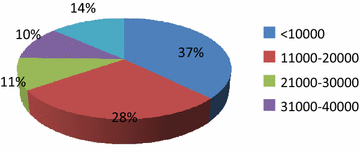 A bustling local market in Vietnam, showcasing fresh produce and local products
A bustling local market in Vietnam, showcasing fresh produce and local products
5. How Can Technology Enhance the Integration of Agriculture and Tourism?
Technology can enhance the integration of agriculture and tourism by providing real-time information, improving market access, and promoting sustainable practices.
In today’s digital age, technology plays a crucial role in enhancing the integration of agriculture and tourism. By leveraging technology, destinations can create more efficient, sustainable, and enriching experiences for both farmers and tourists.
5.1. How Can Mobile Apps Connect Tourists with Local Farms?
Mobile apps can connect tourists with local farms by providing information on farm locations, products, and activities. They can also facilitate direct sales and communication between farmers and tourists.
-
Farm Directories: Mobile apps can provide comprehensive directories of local farms, including information on their location, products, and activities.
-
Direct Sales: Mobile apps can facilitate direct sales between farmers and tourists, allowing tourists to purchase fresh produce, artisanal products, and other goods directly from the source.
-
Communication Tools: Mobile apps can provide communication tools, such as messaging and booking systems, allowing tourists to connect with farmers and arrange visits or purchases.
5.2. How Can Online Marketplaces Improve Market Access for Farmers?
Online marketplaces can improve market access for farmers by providing a platform to sell their products to a wider audience, reducing transaction costs, and streamlining supply chains.
-
Wider Reach: Online marketplaces provide farmers with a platform to sell their products to a wider audience, including tourists and businesses from around the world.
-
Reduced Costs: Online marketplaces can reduce transaction costs by eliminating intermediaries and streamlining supply chains.
-
Streamlined Logistics: Online marketplaces can streamline logistics by providing tools for managing inventory, processing orders, and arranging shipping.
5.3. How Can Data Analytics Promote Sustainable Agricultural Practices?
Data analytics can promote sustainable agricultural practices by providing farmers with insights into crop yields, soil conditions, and water usage, allowing them to optimize their farming methods and reduce their environmental impact.
-
Crop Monitoring: Data analytics can be used to monitor crop yields, identify areas of improvement, and optimize planting and harvesting schedules.
-
Soil Analysis: Data analytics can be used to analyze soil conditions, identify nutrient deficiencies, and recommend appropriate fertilizer applications.
-
Water Management: Data analytics can be used to monitor water usage, identify areas of waste, and optimize irrigation schedules.
5.4. How Can Virtual Tours Showcase Agricultural Landscapes?
Virtual tours can showcase agricultural landscapes by providing immersive, interactive experiences that allow tourists to explore farms, vineyards, and other agricultural sites from the comfort of their own homes.
-
Immersive Experiences: Virtual tours can provide immersive experiences that allow tourists to explore agricultural landscapes in detail, including 360-degree views, interactive maps, and informative narration.
-
Accessibility: Virtual tours can make agricultural landscapes accessible to a wider audience, including people who are unable to travel or who have mobility limitations.
-
Educational Value: Virtual tours can provide educational value by teaching tourists about farming practices, local cuisine, and the importance of sustainable agriculture.
5.5. How Does SIXT.VN Utilize Technology to Enhance Your Travel Experience in Vietnam?
SIXT.VN utilizes technology to enhance your travel experience in Vietnam by providing online booking, mobile apps, and personalized recommendations, making it easy to plan and enjoy your trip.
-
Online Booking: SIXT.VN provides online booking for transportation, accommodations, and tours, making it easy to plan and book your trip from anywhere in the world.
-
Mobile Apps: SIXT.VN offers mobile apps that provide real-time information, navigation assistance, and personalized recommendations, helping you to make the most of your trip.
-
Personalized Recommendations: SIXT.VN provides personalized recommendations based on your interests and preferences, helping you to discover the best of Vietnam’s agricultural and tourism offerings.
-
Customer Support: SIXT.VN provides 24/7 customer support via phone, email, and chat, ensuring that you have assistance whenever you need it.
-
Secure Payments: SIXT.VN offers secure payment options, ensuring that your financial information is protected when you book your trip.
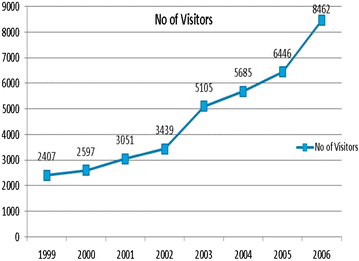 A smartphone displaying a travel app with information on local farms and agricultural tours
A smartphone displaying a travel app with information on local farms and agricultural tours
6. What Are the Policy and Investment Strategies to Support Agriculture-Tourism Integration?
Policy and investment strategies to support agriculture-tourism integration include government incentives, infrastructure development, and capacity building programs.
To fully realize the potential of agriculture-tourism integration, effective policy and investment strategies are essential. Governments and organizations must work together to create an enabling environment that supports sustainable development and maximizes the benefits for local communities.
6.1. How Can Governments Incentivize Agritourism Development?
Governments can incentivize agritourism development by providing tax breaks, grants, and subsidies to farmers who diversify their operations and offer tourism-related services.
-
Tax Breaks: Governments can offer tax breaks to farmers who invest in agritourism facilities, such as lodging, restaurants, and tour operations.
-
Grants: Governments can provide grants to farmers who develop agritourism projects, such as farm stays, educational programs, and recreational activities.
-
Subsidies: Governments can offer subsidies to farmers who adopt sustainable farming practices, such as organic farming and water conservation.
6.2. How Important is Infrastructure Investment?
Infrastructure investment is critical for agriculture-tourism integration, requiring improvements in transportation networks, communication systems, and tourism facilities to support the growth of both sectors.
-
Transportation Networks: Investing in transportation networks, such as roads, bridges, and airports, can improve access to agricultural areas and make it easier for tourists to visit farms and rural communities.
-
Communication Systems: Investing in communication systems, such as broadband internet and mobile networks, can improve access to information and facilitate communication between farmers, tourists, and businesses.
-
Tourism Facilities: Investing in tourism facilities, such as hotels, restaurants, and visitor centers, can enhance the tourism experience and support the growth of the tourism industry.
6.3. How Can Capacity Building Programs Enhance Local Skills?
Capacity building programs enhance local skills by providing training in sustainable farming practices, tourism management, and hospitality services, ensuring that local communities can benefit from tourism opportunities.
-
Sustainable Farming Practices: Capacity building programs can provide training in sustainable farming practices, such as organic farming, water conservation, and soil management, helping farmers to improve their productivity and reduce their environmental impact.
-
Tourism Management: Capacity building programs can provide training in tourism management, such as marketing, customer service, and tour guiding, helping local residents to develop the skills needed to work in the tourism industry.
-
Hospitality Services: Capacity building programs can provide training in hospitality services, such as cooking, cleaning, and customer care, helping local residents to provide high-quality services to tourists.
6.4. How Can Policies Support Sustainable Land Use and Environmental Protection?
Policies can support sustainable land use and environmental protection by regulating land development, promoting conservation, and enforcing environmental regulations to protect natural resources.
-
Land Use Regulations: Land use regulations can prevent deforestation, protect wetlands, and preserve agricultural land, ensuring that natural resources are used sustainably.
-
Conservation Incentives: Conservation incentives can encourage farmers and landowners to adopt sustainable practices, such as preserving forests, protecting watersheds, and restoring degraded ecosystems.
-
Environmental Regulations: Environmental regulations can protect water quality, reduce pollution, and conserve biodiversity, ensuring that natural resources are protected for future generations.
6.5. How Does SIXT.VN Align with These Policy and Investment Strategies to Promote Sustainable Tourism in Vietnam?
SIXT.VN aligns with these policy and investment strategies by supporting local businesses, promoting sustainable travel options, and educating travelers about responsible travel practices in Vietnam.
-
Supporting Local Businesses: SIXT.VN partners with local businesses, such as farm-to-table restaurants, tea plantations, and community-based eco-tourism projects, to promote their services and products to tourists.
-
Promoting Sustainable Travel Options: SIXT.VN offers sustainable travel options, such as eco-friendly accommodations, responsible tour operators, and transportation services that minimize environmental impact.
-
Educating Travelers: SIXT.VN educates travelers about responsible travel practices, such as respecting local culture, supporting local businesses, and minimizing their environmental impact.
-
Promoting Ethical Tourism: SIXT.VN promotes ethical tourism by ensuring that all of its suppliers adhere to fair labor practices and respect human rights.
-
Monitoring and Evaluation: SIXT.VN regularly monitors and evaluates the sustainability performance of its suppliers to ensure that they are meeting their commitments.
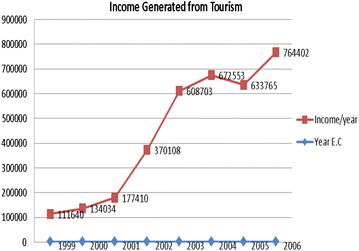 Government officials and local farmers discussing agritourism development in a rural community
Government officials and local farmers discussing agritourism development in a rural community
7. What are the Future Trends in Agriculture and Tourism Integration?
Future trends in agriculture and tourism integration include increased use of technology, greater focus on sustainability, and growing demand for authentic experiences.
As the world evolves, the integration of agriculture and tourism will continue to evolve as well. Several key trends are expected to shape the future of this dynamic relationship, creating new opportunities for both sectors.
7.1. How Will Technology Continue to Shape the Industry?
Technology will continue to shape the industry by enabling personalized experiences, improving efficiency, and promoting sustainable practices in agriculture and tourism.
-
Personalized Experiences: Technology will enable personalized experiences by allowing tourists to customize their trips based on their interests and preferences.
-
Improved Efficiency: Technology will improve efficiency by streamlining operations, reducing costs, and enhancing communication between farmers, tourists, and businesses.
-
Sustainable Practices: Technology will promote sustainable practices by providing tools for monitoring resource use, reducing waste, and optimizing production methods.
7.2. What Will be the Impact of the Growing Focus on Sustainability?
The growing focus on sustainability will drive demand for eco-friendly tourism options, support responsible farming practices, and promote the preservation of natural resources.
-
Eco-Friendly Tourism: The growing focus on sustainability will drive demand for eco-friendly tourism options, such as eco-lodges, sustainable tour operators, and responsible transportation services.
-
Responsible Farming: The growing focus on sustainability will support responsible farming practices, such as organic farming, water conservation, and soil management, helping to protect the environment and ensure the long-term viability of agriculture.
-
Preservation of Natural Resources: The growing focus on sustainability will promote the preservation of natural resources, such as forests, wetlands, and biodiversity, ensuring that these resources are available for future generations.
7.3. How Will the Demand for Authentic Experiences Impact Agriculture-Tourism Integration?
The demand for authentic experiences will drive tourists to seek out unique, immersive activities that showcase local culture, traditions, and cuisine, enhancing the integration of agriculture and tourism.
-
Cultural Immersion: The demand for authentic experiences will drive tourists to seek out activities that allow them to immerse themselves in local culture, such as cooking classes, craft workshops, and traditional festivals.
-
Farm-to-Table Dining: The demand for authentic experiences will drive tourists to seek out farm-to-table dining experiences, where they can enjoy fresh, locally sourced meals in a rustic setting.
-
Hands-On Activities: The demand for authentic experiences will drive tourists to seek out hands-on activities, such as harvesting crops, milking cows, and making cheese.
7.4. How Can Urban Agriculture Contribute to Tourism in Cities?
Urban agriculture can contribute to tourism in cities by providing educational opportunities, promoting local cuisine, and enhancing the aesthetic appeal of urban environments.
-
Educational Opportunities: Urban agriculture can provide educational opportunities for tourists to learn about sustainable farming practices, urban food systems, and the importance of local food production.
-
Local Cuisine: Urban agriculture can promote local cuisine by providing fresh, locally sourced ingredients to restaurants and markets, enhancing the culinary experience for tourists.
-
Aesthetic Appeal: Urban agriculture can enhance the aesthetic appeal of urban environments by creating green spaces, beautifying neighborhoods, and providing habitat for wildlife.
7.5. How is SIXT.VN Preparing for These Future Trends to Enhance Your Travel Experience?
SIXT.VN is preparing for these future trends by investing in technology, promoting sustainability, and partnering with local businesses to provide authentic, immersive travel experiences in Vietnam.
-
Investing in Technology: SIXT.VN is investing in technology to provide personalized recommendations, streamline booking processes, and enhance communication between travelers and local businesses.
-
Promoting Sustainability: SIXT.VN is promoting sustainability by partnering with eco-friendly accommodations, responsible tour operators, and transportation services that minimize environmental impact.
-
Partnering with Local Businesses: SIXT.VN is partnering with local businesses to provide authentic, immersive travel experiences that showcase Vietnamese culture, cuisine, and traditions.
-
Offering Unique Activities: SIXT.VN is offering unique activities, such as farm stays, cooking classes, and cultural tours, that allow travelers to connect with local communities and experience the best of Vietnam.
-
Educating Travelers: SIXT.VN is educating travelers about responsible travel practices, such as respecting local culture, supporting local businesses, and minimizing their environmental impact.
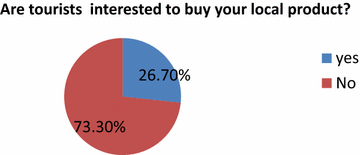 A futuristic farm with advanced technology and sustainable practices
A futuristic farm with advanced technology and sustainable practices
8. Conclusion: Embracing the Symbiotic Relationship Between Agriculture and Tourism with SIXT.VN
The symbiotic relationship between agriculture and tourism offers unparalleled opportunities for enriching travel experiences, supporting local communities, and promoting sustainability.
The strong connection between agriculture and tourism offers incredible chances to make travel more fulfilling, support local communities, and promote sustainable practices. By recognizing and embracing this partnership, we can create travel experiences that are not only enjoyable but also responsible and beneficial for everyone involved.
8.1. What Key Takeaways Can You Apply to Your Travels?
Key takeaways you can apply to your travels include supporting local businesses, seeking out authentic experiences, and making sustainable choices to enhance your journey and contribute to local communities.
-
Support Local Businesses: Whenever you travel, make an effort to support local businesses, such as family-run restaurants, artisanal shops, and community-based tour operators.
-
Seek Out Authentic Experiences: Look for travel experiences that allow you to immerse yourself in local culture, such as cooking classes, craft workshops, and traditional festivals.
-
Make Sustainable Choices: Make sustainable choices when you travel, such as staying in eco-friendly accommodations, using public transportation, and reducing your waste.
8.2. How Can You Experience the Best of Vietnamese Culture Through Agriculture and Tourism?
You can experience the best of Vietnamese culture through agriculture and tourism by visiting local markets, exploring tea plantations, and participating in farm stays to connect with the heart of Vietnam.
-
Visit Local Markets: Explore local markets to discover fresh produce, local cuisine, and artisanal products, and to connect with the people who produce them.
-
Explore Tea Plantations: Visit tea plantations in the highlands to learn about tea production, sample different varieties of tea, and enjoy the stunning landscapes.
-
Participate in Farm Stays: Participate in farm stays to experience rural life firsthand, learn about farming practices, and connect with local communities.
8.3. What Role Does SIXT.VN Play in Promoting Responsible Travel in Vietnam?
SIXT.VN plays a crucial role in promoting responsible travel in Vietnam by connecting travelers with sustainable options, supporting local communities, and educating about ethical practices.
-
Connecting Travelers with Sustainable Options: SIXT.VN connects travelers with eco-friendly accommodations, responsible tour operators, and transportation services that minimize environmental impact.
-
Supporting Local Communities: SIXT.VN partners with local businesses, such as farm-to-table restaurants, tea plantations, and community-based eco-tourism projects, to promote their services and products to tourists.
-
Educating about Ethical Practices: SIXT.VN educates travelers about responsible travel practices, such as respecting local culture, supporting local businesses, and minimizing their environmental impact.
8.4. How Can SIXT.VN Help You Plan Your Next Adventure in Vietnam?
SIXT.VN can help you plan your next adventure in Vietnam by providing convenient booking, personalized recommendations, and support for sustainable and authentic travel experiences.
-
Convenient Booking: SIXT.VN provides convenient online booking for transportation, accommodations, and tours, making it easy to plan and book your trip from anywhere in the world.
-
Personalized Recommendations: SIXT.VN provides personalized recommendations based on your interests and preferences, helping you to discover the best of Vietnam’s agricultural and tourism offerings.
-
Support for Sustainable Travel: SIXT.VN supports sustainable travel by partnering with eco-friendly suppliers, promoting responsible travel practices, and offering sustainable travel options.



